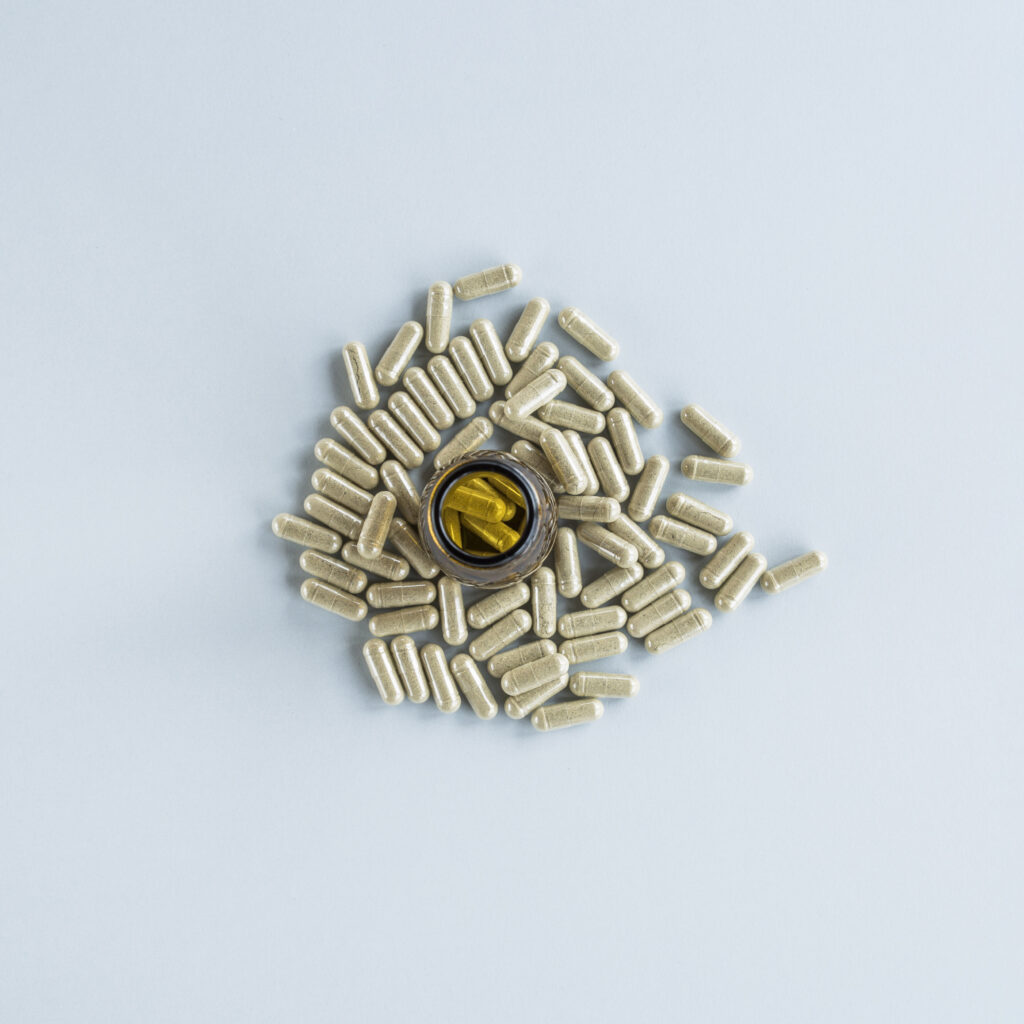Probiotics and Digestive Health: Benefits, Risks, and More

Probiotics are live microorganisms — mostly bacteria and yeasts — that, when consumed in adequate amounts, can improve the balance of your intestinal microbiota and support overall health.
They occur naturally in fermented foods like yogurt, kefir, kimchi, and sauerkraut, and are also available in dietary supplements. According to the International Scientific Association for Probiotics and Prebiotics (ISAPP), probiotics primarily act by restoring microbial balance and modulating immune and metabolic processes in the gut.
When your gut microbiome is balanced, it helps with digestion, vitamin synthesis, inflammation control, and even mood regulation through the gut–brain axis.

How Probiotics Support Digestive Health: The Science Behind the Benefits
1. Restoring Microbial Balance After Stress or Antibiotics
Antibiotics, illness, and chronic stress can disrupt gut flora, reducing the number of beneficial bacteria. Probiotic intake replenishes these populations, helping your gut recover faster.
This helps normalize digestion, reduce diarrhea risk, and improve nutrient absorption.
2. Improving Gut Motility and Reducing Common Digestive Symptoms
Probiotics can ease symptoms like bloating, gas, and irregular bowel movements by improving intestinal motility and enzyme function.
A 2025 umbrella review in the European Journal of Medical Research found that probiotic use significantly reduced gastrointestinal discomfort, nausea, bloating, and constipation frequency across multiple populations.
By producing enzymes and organic acids, probiotics also help break down carbohydrates and fibers, reducing gas formation and promoting smoother digestion.
3. Strengthening the Gut Barrier and Reducing Inflammation
Your intestinal lining acts as a barrier between the external environment and your bloodstream. When this barrier is compromised (“leaky gut”), undigested food particles and toxins can enter circulation, triggering inflammation and fatigue.
Probiotics — particularly strains like Lactobacillus plantarum and Bifidobacterium longum — support the gut barrier by increasing mucin production and reducing permeability. A 2024 Frontiers in Immunology review concluded that probiotics enhance tight-junction proteins, thereby improving barrier integrity and lowering inflammatory cytokines.
This mechanism is particularly beneficial for individuals with IBS, IBD, or chronic low-grade inflammation.

4. Supporting Nutrient Absorption and Metabolism
Probiotics can influence how efficiently your body absorbs nutrients such as calcium, magnesium, and B vitamins. They also play a role in bile salt metabolism and fat digestion.
Some bacterial strains produce short-chain fatty acids (SCFAs) — compounds like butyrate and acetate — that nourish intestinal cells, regulate metabolism, and help the body extract energy more efficiently from food.
By improving digestion at the microbial level, probiotics indirectly support metabolic balance — one reason why gut-health optimization is often linked with better weight management.
How to Integrate Probiotics into Your Daily Digestive Routine
1. Focus on Fermented Foods
Natural sources remain one of the best and most sustainable ways to consume probiotics:
- Yogurt & kefir: Contain Lactobacillus and Bifidobacterium strains that support digestion.
- Kimchi & sauerkraut: Offer lactic acid bacteria that enhance gut motility and immunity.
- Miso & tempeh: Provide enzymes and probiotic species alongside plant-based protein.
These foods not only introduce beneficial microbes but also supply prebiotic fibers, which feed good bacteria already present in your gut.

2. Choose the Right Supplement Formulation
If dietary intake is limited, supplements can provide a concentrated source of beneficial strains. But strain specificity matters — not all probiotics do the same thing.
For digestive health, research supports strains such as:
- Lactobacillus rhamnosus GG — for antibiotic-associated diarrhea.
- Bifidobacterium longum — for IBS symptom relief.
- Lactobacillus plantarum 299v — for gas and bloating reduction.
When selecting a supplement, consider:
- Proven strain and dosage (at least 1–10 billion CFUs).
- Delivery system (delayed-release capsules improve survival to the intestines).
- Verified clinical studies on the formula.
At Bioma Health, our gut-health approach emphasizes this kind of precision: combining strain science, diet optimization, and microbiome resilience for long-term digestive harmony.

3. Combine Probiotics with Prebiotics and Enzymes
To get the most from probiotics, they should work alongside prebiotics (fibers that feed beneficial bacteria) and digestive enzymes (which break down nutrients).
This synergistic trio — probiotics, prebiotics, and enzymes — ensures your gut environment is both well-populated and well-functioning. Foods like oats, garlic, onions, bananas, and legumes are excellent prebiotic sources.
Potential Risks and Side Effects: What You Should Know
While probiotics are generally safe, they are not without caveats. Awareness helps you use them wisely.
1. Mild Digestive Reactions at the Start
Some people experience temporary bloating, gas, or mild cramping as their microbiome adjusts. These symptoms typically subside within a week or two.
2. Infections in Immunocompromised Individuals
Although rare, individuals with severely weakened immune systems, central lines, or serious underlying illnesses may face a risk of bloodstream infection. Such cases are exceedingly uncommon but underscore the need for medical supervision in vulnerable populations.
3. Over-Reliance or Unverified Products
Not all probiotic supplements are tested or standardized. Some may contain fewer live organisms than stated or unlisted strains. Always look for products with independent third-party verification or clinical validation.
A report by the U.S. NCCIH emphasizes that while probiotics show benefit, “their effects are strain- and condition-specific, and claims beyond tested outcomes should be viewed with caution.”
When Probiotics Might Not Be Enough
Even the best probiotics can’t compensate for a consistently poor diet or chronic stress. The gut ecosystem thrives on whole-food nutrition, fiber, movement, hydration, and rest.
If you’re experiencing persistent digestive distress — chronic bloating, unexplained weight changes, or irregular bowel habits — it’s wise to consult a healthcare provider to rule out food intolerances, infections, or enzyme insufficiency.

Emerging Research: Beyond Digestion
Scientists are now exploring how probiotics influence:
- Mood and stress response via the gut–brain axis (Lactobacillus helveticus and Bifidobacterium breve show promise).
- Immune modulation — reducing susceptibility to respiratory and gastrointestinal infections.
- Skin and metabolic health — by regulating inflammation and nutrient processing.
This body of work reinforces the idea that gut health is central to overall wellbeing — digestion may be just the starting point.
The Bioma Health Perspective: A Holistic Approach to Gut Support
At Bioma Health, we view probiotics as one component of a broader gut-health strategy. The goal isn’t simply to add microbes, but to create the right conditions for them to thrive — through balanced nutrition, consistent habits, and targeted microbial support.
Our probiotic formulations are designed to:
- Enhance microbial diversity and resilience.
- Reinforce gut barrier strength and reduce inflammation.
- Work synergistically with natural digestive enzymes and prebiotic nutrition.
- Support metabolic efficiency, comfort, and mental clarity.
By focusing on the entire ecosystem, Bioma’s approach helps ensure your gut isn’t just functioning — it’s flourishing.
Learn more about how probiotics, enzymes, and diet combine for optimal gut wellness at Bioma Health’s Gut Health page — your resource for evidence-based guidance on microbiome support.
Practical Tips for Everyday Digestive Balance
- Eat a diverse, fiber-rich diet to feed beneficial bacteria.
- Include enzyme- and probiotic-rich foods like kefir, papaya, and miso.
- Stay hydrated — water helps maintain bowel motility.
- Manage stress through deep breathing, yoga, or outdoor time.
- Limit processed foods, alcohol, and artificial sweeteners, which disrupt microbial balance.
- Get regular movement; even walking stimulates gut motility.
These lifestyle anchors amplify the benefits of probiotic use, creating a self-reinforcing loop of gut resilience and better digestion.

A Balanced Gut Is the Foundation of Lasting Health
Probiotics are not miracle pills, but their benefits for digestive health are well-documented: better microbial balance, improved digestion, reduced bloating, and enhanced barrier integrity.
The key is consistency — feeding your gut daily with the right microbes and nutrients. When paired with mindful eating, rest, and hydration, probiotics can transform digestive health from the inside out.
At Bioma Health, we believe that digestive wellness begins with understanding your microbiome. Whether through probiotic foods or targeted supplementation, every step toward a balanced gut is a step toward improved energy, comfort, and long-term vitality.
Related articles



